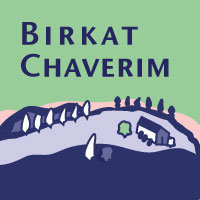As part of the Mitzvot Unplugged series we are happy to welcome Jennifer from Adventures in MamaLand. She will be talking about teaching Pirkei Avot.
 It’s spring… time to learn Pirkei Avot! Traditionally, that’s every Shabbat afternoon between Pesach and Shavuot, one of six chapters per week. Many people keep going until Rosh Hashanah, but that’s generally enough for us – if, ahem, we make it that far.
It’s spring… time to learn Pirkei Avot! Traditionally, that’s every Shabbat afternoon between Pesach and Shavuot, one of six chapters per week. Many people keep going until Rosh Hashanah, but that’s generally enough for us – if, ahem, we make it that far.
As a parent, I love Pirkei Avot! There’s so much great stuff: from the unbroken chain of Torah tradition to Hillel’s, “If not now, then when?” and Tarfon’s “It is not your obligation to complete the task, but neither are you free to desist from it.” Then there’s Ben Zoma’s “Who is wise? One who learns from all people.” This is great stuff. Deep, deep stuff, that I love to mine with kids.
But I still haven’t found many creative teaching ideas to go along with these great concepts. For some reason, we seem to equate deep with difficult, though for kids raised on the rules of the kindergarten (fairness, sharing, caring), these kinds of rules won’t sound unusual at all. (You’ll want to edit for age-appropriateness, though!)
The Jewish Community Centers Association seems to agree. Back in 2001, they got on the “values” bandwagon (one of the biggest trends in education) and developed a Pirkei Avot curriculum called “An Ethical Start,” which teaches things like sharing and self-control. Available only to JCC preschools, it includes “books, posters, stickers, original songs and a doll” – and costs $2500 per classroom. That’s a whole lotta doll.
What goes on here in our house is a lot more humble.
Every week, I try to pre-read three short selections. I compare translations in three copies (straight-up Artscroll
Artscroll, a Feldheim edition with the commentaries of Samson Raphael Hirsch, and the Artscroll “Youth Pirke Avos”, the least literal but most kid-friendly, with its colourful pictures).
Even working with translations, I want the kids to hear or read the original text. These sources are their mesorah; their heritage. One way that the classical homeschooler in me insists that they interact with the text is through copywork.
Even kids too young to understand can copy parts of original pesukim (verses) from the Torah, Tanach, Tefillah, Pirkei Avot or elsewhere. It’s our job (Pirkei Avot says so!) to immerse ourselves, not just in the ideas, but in the language of Torah and of those who taught it over the millennia.
Copywork does a few things: exposes our children to the mechanics spelling, grammar and sentence structure; tells them that these texts are ancient and valuable (copying holy texts is an age-old tradition), and gives them a sense of ownership over verses they’ve written themselves. Indeed, the last mitzvah of the 613 is for each person to write his or her own Torah scroll.
Two limitations: this isn’t a Shabbat activity, so it takes planning ahead. And I always keep copywork short and light, well within the child’s ability. Two words may be fine, or three, or four, gradually increasing to a full sentence or even, later, a paragraph.
As a classically-inspired homeschooler, I also believe in great reading. Not just as a fun bonding cuddle-time experience; wonderful books can help reinforce the lessons of Pirkei Avot.
There’s always a perfect book, whatever level each child is at. For the verse “It’s not upon you to complete the task,” Barbara Cooney’s Miss Rumphius, with its story of a young girl (later an old woman) who sets out to make the world a better place, is a good pick for young kids. Natalie Carlson’s The Family Under the Bridge
offers some of the same lessons for older readers (just an example – please note that this book contains many Christian references).
For “Who is rich? Those who are happy with what they have,” Eleonor Estes’ The Hundred Dresses might drive home the message that our possessions don’t make us happy or wealthy (yes, there are a few mentions of Christmas in here, too; this is something we’ve wrestled with for a while, but those answers will be different for every family). In any event, there are tons of booklists online (try searching for “character book list”… here’s one, but there are many more).
One last thing: Pirkei Avot is about the links from generation to generation – it has the word “Avot” right in the title. This is a great time of year to spend time with older family members and friends to help understand continuity – where our Jewishness came from. Older people can start conversations and engage in a way that helps kids see them as children, young adults, builders and shapers of history.
This is hard for me. Too often, I’ll short-circuit my mother’s stories if I’ve heard them often enough. But have my children heard them often enough, so they’ll remember them forever? Rabbi Manis Friedman says, “quote your parents to your children.” I try.
Of course, there’s no special time of year for kibbud av v’eim, honouring parents. Ideally, we do it all year round. But then, ideally, we remember going out of Egypt all year round, and we still celebrate Pesach to give it a special place on our calendar.
The specifics vary from year to year with the age of my kids and what else is going on in our lives. But whatever happens, I keep Pirkei Avot light. When you’re a homeschooler in a small house with a single table, you run the risk that every activity together can end up feeling a lot like school. We don’t memorize Pirkei Avot, and I don’t quiz them on it; we read it together, usually over treats at Seudah Shelishit. We sing before and afterwards; I read them other books at the table as well.
At a lazy time of a year, Pirkei Avot is at once a taste of something eternal and serious and a fun way to dip my kids’ toes in the cool, refreshing waters of timeless Jewish values.
For a collection of sample activities to go along with Pirkei Avot Chapter 4, please visit my blog.
“Turn it, and turn it, for everything is in it.” (Pirkei Avot 5:22)
Jennifer M. MacLeod is a proud Israel-bound mama of four, two teens and two littles. She homeschools the younger two children and blogs at Adventures in MamaLand..






Add a Comment